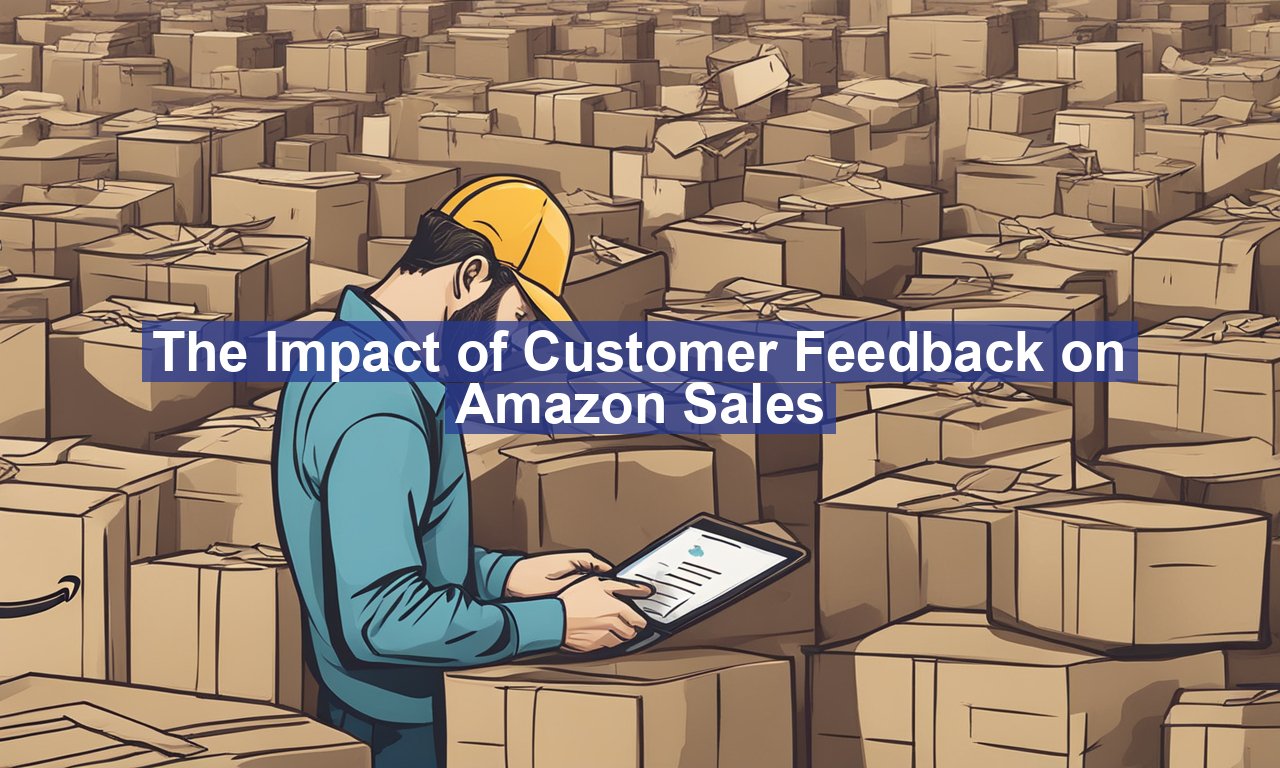In the bustling and ever-evolving world of e-commerce, customer feedback plays a pivotal role, often tipping the scales between brand loyalty and customer discontent. Nowhere is this more evident than on Amazon, where reviews and ratings can make or break a product’s success. As a seller on Amazon, understanding the profound impact of customer feedback on sales can unlock new opportunities for growth and enhance brand credibility.
Understanding Amazon’s Feedback System
Amazon’s feedback system is designed to help customers make informed purchasing decisions. It encompasses seller ratings, product reviews, and star ratings. But why does it matter so much? Picture this: you’re browsing for a laptop on Amazon, and two options catch your eye. One has a 4.7-star rating with rave reviews, while the other holds a modest 3.5-star rating with mixed feedback. Which one do you feel more confident purchasing?
Why Customer Feedback Matters
Feedback impacts Amazon sales significantly, influencing:
- First Impressions: High star ratings and positive reviews create a great first impression, drawing more potential buyers.
- Conversion Rates: Products with stellar reviews tend to convert at a higher rate because they establish trust.
- Amazon Ranking: Positive feedback can boost a product’s visibility on Amazon’s search results, leading to more clicks and, thus, higher sales.
According to a study by PowerReviews, reviews are crucial to over 95% of consumers in the decision-making process. This staggering figure underscores the importance of maintaining positive feedback for attracting new customers.
Strategies for Leveraging Customer Feedback
Turning feedback into a powerful sales tool is an art. Here’s how you can harness the potential of customer reviews on Amazon:
1. Encourage More Reviews
Your top priority should be prompting satisfied customers to share their experiences. Here’s how:
- Leverage follow-up emails post-purchase, gently nudging customers to leave a review.
- Incentives work wonders! While you can’t offer direct rewards for a review, showcasing appreciation in a genuine, creative way can go a long way.
2. Respond to Feedback
Whether it’s a positive note or constructive criticism, responding to feedback demonstrates transparency and customer care:
- Address negative reviews promptly—acknowledge the concern and offer a solution to rectify the issue.
- Thank customers for positive feedback, adding a personal touch to showcase your brand’s authenticity.
3. Analyze and Improve
Feedback is a goldmine of insights. Regularly analyze reviews to identify:
- Trends in customer complaints, and take immediate action to rectify them.
- Frequently praised features, doubling down on them in future product iterations or marketing campaigns.
The feedback loop shouldn’t be taken lightly. Companies who consistently adapt based on customer reviews often see a marked improvement in their offerings and subsequently, sales.
The Impact on Brand Trust and Sales
The link between customer feedback and sales isn’t just conjecture. Consider these substantial impacts:
Improved Credibility
Products with a higher number of positive reviews are seen as more credible. Think of it this way: reviews act as digital word-of-mouth. Consumers’ trust in feedback from peers often surpasses trust in product descriptions from manufacturers. A report by BrightLocal notes that 76% of people trust online reviews as much as personal recommendations.
Sales Growth
The correlation between customer feedback and sales is direct and significant. For example, a jump from 3 to 4 stars on Amazon can boost sales by as much as 13%, according to an analysis by Harvard Business School. A product’s lifecycle on Amazon is largely driven by consumer opinion. Positive reviews attract more eyes, which translates to higher sales figures.
Enhanced Customer Experience
Feedback isn’t just about driving sales; it also helps foster a customer-centric culture. Customers feel heard and valued, leading to brand loyalty and repeat business. By utilizing feedback efficiently, sellers can anticipate customer needs and refine their offerings to enhance the overall purchasing experience.
Conclusion: Proactive Feedback Management
Ignoring the significance of customer feedback on Amazon is a perilous path that can lead to dwindling sales and reputational harm. By leveraging feedback, sellers can not only improve their products but also create a thriving ecosystem of satisfied, loyal customers. In the world of e-commerce, customer insight is power, and wielding it wisely can pave the way for exponential growth and success.


